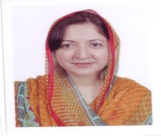
- Home
- About
- Academics
- Faculty of Computing
- Faculty of Nursing & Midwifery
- Faculty of Health Sciences
- Shifa College of Medicine
- Vision of Shifa College of Medicine
- Mission Statement of Shifa College of Medicine
- Bachelor of Medicine, Bachelor of Surgery (MBBS) Course Outcomes
- Accreditation
- Why Shifa College of Medicine
- Admissions – Shifa College of Medicine
- Vacant Seats – Shifa College of Medicine
- Academic Calendar – Shifa College of Medicine
- Curriculum and Assessment
- Student Corner
- Postgraduate Training
- BLS/ACLS & BTLS
- Clinical Electives Program
- SCM Downloads
- SCM Alumni
- Student Achievements SCM
- SCM Events
- Student Corner
- Shifa School of Health Professions Education
- Shifa College of Dentistry
- Vision – Shifa College of Dentistry
- Mission – Shifa College of Dentistry
- BDS Curriculum and Assessment
- BDS Admissions 2023-2024
- Vacant Seats – Shifa College of Dentistry
- PhD Dentistry
- Academic Calendar – SCD
- Saturday Seminar – SCD
- Friday Lectures – SCD
- SCD Events
- Community Service Policy – SCD
- Child Care Policy – SCD
- SCD Downloads
- Department of Podiatric Medicine
- Shifa School of Universal Health Coverage
- Shifa College of Medicine
- Faculty of Pharmaceutical & Allied Health Sciences
- Faculty of Social Sciences and Humanities
- Admissions
- ORIC
- QEC
- QEC Organizational Structure
- QEC Functions
- Director QEC in STMU Statuatory Bodies
- QEC Team
- Assessment
- Accreditations (Regulators)
- HEC NoCs
- QEC Surveys
- Institutional Memberships
- QEC Annual Activity Calendar
- Institutional Quality Circle (IQC)
- QEC Framework
- Downloadable Reseources
- Program Team
- QEC News
- QEC Useful Links
- JSTMU
- Media Cell
- Contact Us
- Downloads

 Dr. Sadia
Dr. Sadia